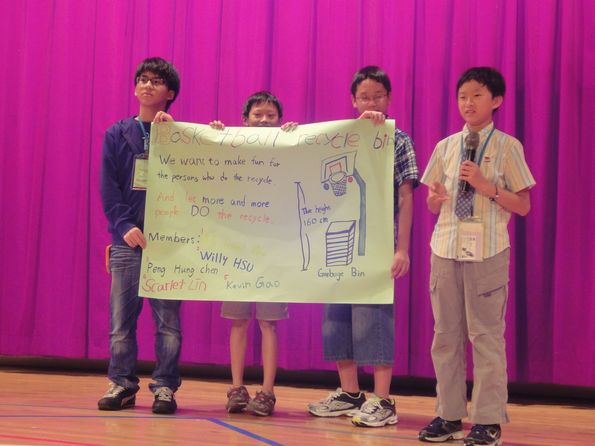I don't work for Rovio, the maker of the video game Angry Birds. Nor am I trying to get people to buy the game. (I only play the free versions myself.)
But in every talk I've given on social innovation in the last few months, I've played clips from Angry Birds.
Like this one:
To my amazement, a clip like this can get enthusiastic applause from the youth I speak to. All of them, wherever they're from, have played Angry Birds. Just like Hollywood blockbusters, popular video games have become universal reference points for youth around the world.
I use clips like this and others to pose a question: What makes this game fun and how can we apply the same design elements to social change?
In other words, how do we make creating change more fun and engaging?
Yes, social innovators are jumping on the gamification bandwagon too. Like entrepreneurs and educators who are venturing into this field, we're trying to figure out how to engage people more effectively at a time when they are becoming increasingly more distracted by the tsunami of information and content generated by everyone.
Young people, especially, are distracted by online games that are the very definition of addiction. (As I wrote this last sentence, I was notified by Farmville that I had to harvest my pumpkins, which forced me to take a 10 minute break.)
But social innovators are also turning to gamification -- the application of game elements to non-game settings -- to address an age-old problem.
It's a problem described succinctly by some as the "knowing-doing gap" -- the unfortunate reality that there's a gap between what we know we should do and what we actually do.
We know we should be eating more healthful foods but we gorge ourselves with hamburgers and french fries. We know we should be reducing our use of plastic bags and bottles but we rarely carry reusables with us. We know we should all reduce our carbon footprint but we _________ (fill in your own excuse).
There's a limit to how much we can appeal to logic and reason to get people to "do the right thing." The upper limit for recycling (of municipal waste) seems to be 30 percent, even after decades of promoting such practice. For greater success, we have no choice but to appeal to other motivations.
Games, especially video games like Angry Birds and online games like Farmville, teach us what humans are motivated by.
We're motivated by feedback that's frequent and rapid, challenges that are not too easy or too hard, rewards that are both expected and unexpected, a real sense of purpose or epic meaning, mastery of skills, productivity, accomplishment, involvement of other people, and some degree of autonomy. Those are just a few of the more popular game dynamics.
I've created a social innovation competition called Fun for A Change to invite youth to create social change solutions that are more fun and engaging. And I've been testing this approach at conferences in Asia, working mostly with university students but also with children as young as 10.
Seeing with my own eyes how engaged young people can be in this type of design process, I've come to believe that fun is the most powerful way to invite young people into the social change space.
I'm especially encouraged by the pilot just completed at Simon Fraser University in Surrey, British Columbia. The school's chapter of Students in Free Enterprise (SIFE) held its own Fun for A Change competition and some great ideas emerged.
The runner-up, Lotto Globe, proposed a way to recycle millions of train tickets printed each year by creating a special lottery that you enter by recycling your tickets after you're done. The prizes can come from local businesses, which allows the lottery to promote the local economy. It also sends an important message that recycling small pieces of paper can add up.
The winning idea, Image Garden, went after a more ambitious behavior change. It's a game inspired installation that invites children to express themselves creatively in a public space and take ownership of the public spaces they occupy.
We plan to demonstrate both ideas in the coming months to measure their effectiveness.
Starting in October, Fun for A Change will also be held at 16 universities in Taiwan, one in India, and a few other schools that are not yet confirmed.
Youth who are not at a participating school can also take part in the online challenge at Fun for A Change. Designed to be game-like, "players" design their social change solutions (powered by game dynamics) by completing seven simple missions.
Gamification is not a panacea. In some cases, it may even do more harm than good. But if much of social change involves behavior change, then we need to start taking cues from Angry Birds.
